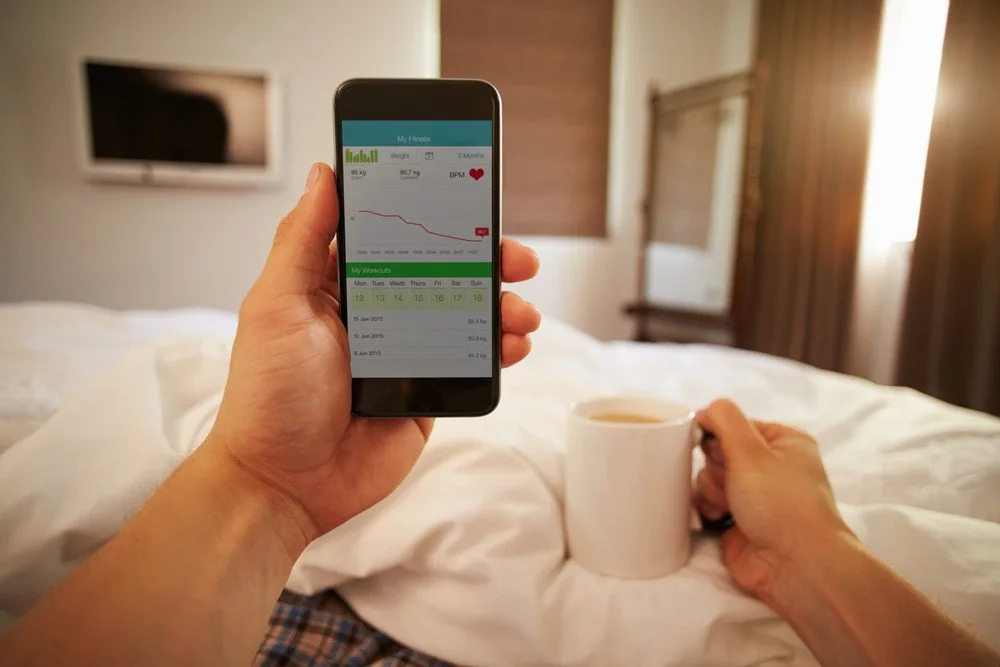Is sleeping next to your phone bad for your health?
Cancer
It’s long been debated whether phones can cause cancer from radiation. With phones kept under pillows and on mattresses and bedside tables whilst sleeping, shouldn’t we be concerned?
Dr. Hana Patel, NHS GP and GP Medico-Legal Expert Witness, explains: “Cell phones emit radiation in the radiofrequency region of the electromagnetic spectrum. Second-, third-, and fourth-generation cell phones (2G, 3G, 4G) emit radiofrequency in the frequency range of 0.7–2.7 GHz. Fifth-generation (5G) cell phones are anticipated to use the frequency spectrum up to 80 GHz.
These frequencies all fall in the non-ionizing range of the spectrum, which is low frequency and low energy. The energy is too low to damage DNA.”
Furthermore, “researchers have carried out several types of population studies to investigate the possibility of a relationship between cell phone use and the risk of tumors, both malignant (cancerous) and nonmalignant (noncancerous).
Four large epidemiologic studies have examined the possible association between cell phone use and cancer: The findings of these studies are mixed, but overall, they do not show an association between cell phone use and cancer.”
Sleep
It’s well known that excessive smartphone use has a dramatic impact on sleep quality, but bringing them into the bedroom can make your sleep even worse. Sleeping with your phone can cause sleep fragmentation, as the notifications and vibrations can cause micro-arousals, without you even noticing.
Fragmented sleep reduces overall sleep quality and can even prevent you from reaching restorative deep sleep and REM stages. The effects of fragmented sleep are often felt the next day with morning grogginess, even with a full 8 hours of sleep – not all sleep is good quality sleep.
Blue light exposure omitted by phones can suppress melatonin, the sleep hormone that tells your body it’s time to go to sleep. This can have a knock-on effect and cause a delayed circadian rhythm, so your body thinks it is still daytime – this doesn’t immediately correct itself after the phone is put down.
Take control over your screen time
We recommend limiting screen time before bed. Try turning off screens at least 30-60 minutes before bed to help your body produce melatonin, otherwise known as the sleep hormone, which can be suppressed by the blue light emitted from screens.
Swapping screens for pages and reading before bed can ease stress, improve sleep quality, relieve insomnia, and promote longer sleep duration.
Fires
Another concern is the risk of a phone overheating. Phones can overheat if kept under pillows or can sustain damage from falling off and through beds, all a risk for fires.
74% of people charge their phones in their bedrooms, many overnight, and one survey found that more than one in ten(11%) people charge their phone under their pillow.
Even worse, with the rising cost of living, people are turning to buying unofficial phone chargers, with many failing to meet safety regulations. This will cause risks of fires, injury, and electric shocks.
Mental health
Research indicates that people who frequently use their smartphones at night experience higher levels of anxiety and depression.
The sleep disturbances, like reduced REM sleep and sleep fragmentation caused by blue light and notifications, can also have a knock-on effect on mental health.
This can cause disrupted emotional regulation and heightened emotional reactivity, where minor stresses can feel overwhelming and difficulty controlling emotions, and even impaired social cognition, with reduced ability in interpreting social cues and empathy.9
Bacteria
Phones are some of the dirtiest items in your home, with many people bringing phones into bathrooms, on public transport, and other bacteria-laden locations.
One study revealed that only 63.4% of people wash their hands after using a public restroom.5
So it is no surprise that scientists have revealed that your phone can be 10 times dirtier than a toilet seat, with bacteria and viruses, including Salmonella, norovirus, staph, gonorrhea, the flu, rhinovirus, and faecal bacteria like E.coli, potentially contaminating your phone and consequently your bed.
How to reduce the risks of sleeping with your cellphone
-
Keep your phone at least a few feet away from your bed or even in another room
-
Avoid charging overnight or using unofficial chargers
-
Use “Do Not Disturb” or “Night Mode” to silence notifications
-
Avoid using your phone 30–60 minutes before sleep
-
Use an alarm clock instead of your phone to wake up
References
-
National Library of Medicine | Global prevalence of digital addiction in general population: A systematic review and meta-analysis
-
Ambitions | 75 Cell Phone Addiction Facts & Statistics
-
HR Fire & Safety | The Dangers of Charging Phones Overnight
-
Her Family | Alarming figures show huge number of people charge phones under their pillow
-
National Library of Medicine | A nationwide survey on the hand washing behavior and awareness
-
Northwestern Medicine | Germs Lurk on Your Device
-
Yavapai County Food Safety Industry Council | Food Safety Scoop
-
Nature | Nighttime smartphone use and changes in mental health and wellbeing among young adults: a longitudinal study based on high-resolution tracking data
-
Nature | Selective suppression of rapid eye movement sleep increases next-day negative affect and amygdala responses to social exclusion



![women [longevity live]](https://longevitylive.com/wp-content/uploads/2020/01/photo-of-women-walking-down-the-street-1116984-100x100.jpg)










